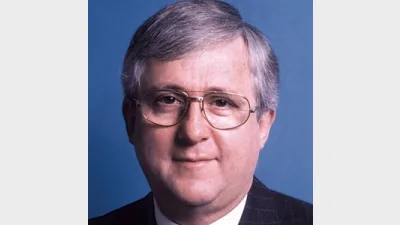Planning mired in conflicted remuneration



All forms of conflicted remuneration need to be removed from the financial planning industry to be replaced by hourly rates and flat/fixed fees, according to financial planning and accounting industry stalwart, Robert MC Brown.
Brown has used a submission to the Financial System Inquiry to not only argue against the continued acceptance of asset-based fees and existing forms of "fee for service" but to suggest that the problems confronting the industry cannot necessarily be solved by higher educational standards or restricting the use of the term "financial planner/adviser".
"Many years in practice as a licensed financial adviser and chartered accountant have demonstrated to me that ‘all roads lead to conflicted remuneration'," his submission said. "This is so in both institutionally-owned advisory groups and so-called ‘independents' (often called ‘aligned' and ‘non-aligned')."
"The simple reality is that as soon as conflicted remuneration (and related product selling incentives, budgets, goals, expectations and requirements) are removed at all levels in the financial planning/advice industry and are replaced with un-conflicted forms of remuneration (hourly rates, flat/fixed fees), financial advice will become simple, affordable and trusted," Brown's submission claimed.
He said he noted that various industry participants were currently promoting adviser higher education as the solution to the industry's problems.
"Education is fine in itself to assist in producing technically competent advisers; but we must never allow the industry to use education as a mechanism to divert attention from the real issue of conflicted remuneration," Brown said. "It's certainly desirable to have advisers in the industry with higher technical education and/or a university degree. However, unless this is accompanied by comprehensive remuneration reform, all that technical education will do is to create an industry of highly qualified product sellers."
"We only need to look at the numerous examples of mis-selling involving the accounting profession to illustrate this point (e.g., commissions on agri-business funds, and commissions on real estate spruiking in self-managed superannuation funds). Naturally, I would support additional technical education of advisers, but not as a solution to the industry's lack of trust."
"Then there is the issue of advisers claiming to be ‘independent' and free of conflict by not being owned by institutions," Brown said. "In many cases, these claims are disingenuous. Many of these so-called ‘independents' have close commercial associations with platform providers, have their own ‘white label' products, charge real estate agent-style commissions (asset fees/‘fees for service') and/or receive life insurance commissions. The point here is that in the financial planning/advice industry, ‘independent' does not necessarily mean ‘independent'."
Recommended for you
The ongoing adviser shortage is a key driver behind advisers’ increased use of ETFs and managed accounts, according to an industry expert, fuelled by the need for cost and efficiency savings.
A business consultant believes there is a proven correlation between advice businesses that develop and commit to a clear business plan and those that see higher profit outcomes, but only when done correctly.
Advice technology solution intelliflo has launched an integration with fintech firm FAYBL to introduce AI capabilities across the intelliflo office offering to boost efficiency.
ASIC’s court case with Interprac is causing advisers to explore the possibility of self-licensing, according to My Dealer Services, as they observe the reputational damage it can bring to a practice.










